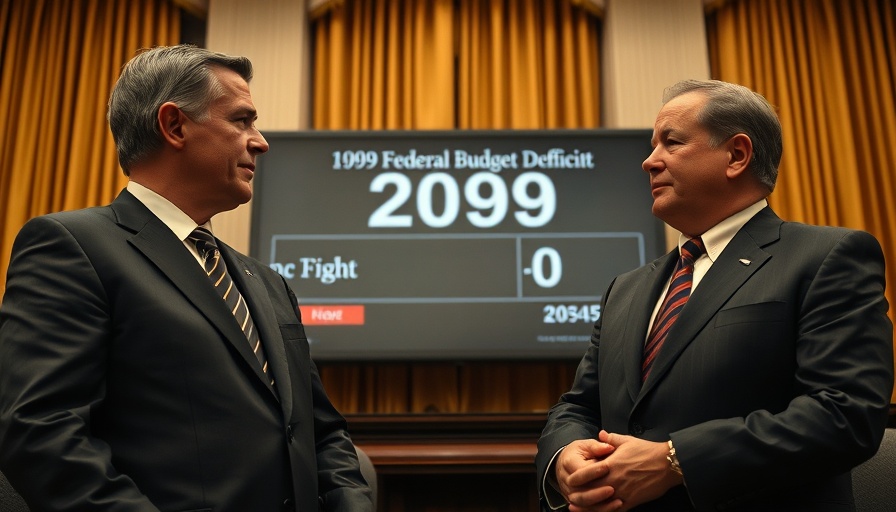
US Fiscal Policy: A Journey to Turbulence
The fiscal policy landscape in the United States is becoming increasingly chaotic, sparking concerns among financial analysts and ordinary citizens alike. The question on everyone's mind is not only how did we get here, but more importantly, what steps need to be taken to divert from this seemingly reckless course.
The Current Landscape: Is Anyone Paying Attention?
As reported, the current fiscal policy is riddled with uncertainty and a lack of coherent direction. Politicians across the spectrum have shifted focus away from pressing fiscal responsibilities and failed to engage in meaningful discourse about alleviating fiscal pressure. Instead of addressing soaring national debt or the vast implications of fiscal mismanagement on essential services, the discourse has largely revolved around rhetoric and political posturing.
The Economic Ripple Effects of Poor Fiscal Management
Ignoring fiscal health can have grave consequences not just at the macroeconomic level but around daily business operations, particularly for Bay Area and Silicon Valley startups that depend on predictable financial environments to thrive. With potential interest rate hikes looming as a consequence of uncontrolled federal spending, business funding strategies may face deprioritization, while venture capital funding may dry up, affecting not just innovation but job creation as well.
Historical Context: Lessons We Should Learn
Historically, countries that have ignored sound fiscal policies often found themselves in dire economic straits. The U.S. must remember the lessons from the Great Recession when poor fiscal policy culminated in widespread unemployment and failed businesses. This context serves as a reminder — a proactive approach is essential to avert repeating such mistakes.
Future Predictions on Economic Stability
If the current trajectory continues, we may witness a sharp economic downturn. Analysts predict that instability could lead to increased unemployment rates in vital sectors such as tech and real estate. With businesses already grappling with challenges ranging from supply chain disruptions to corporate governance issues, a downturn due to fiscal negligence could prove catastrophic for economic growth and employment trends.
The Role of Startups and Local Businesses
For those engaged in the Bay Area startup ecosystem, understanding these dynamics is crucial. As businesses strategize and implement growth initiatives, they must navigate through uncertainties stemming from government actions. The burden falls not just on policymakers but also on entrepreneurs to advocate for responsible fiscal policies that foster a business-friendly environment.
Inspiration to Act and Make Sense of the Mess
While the situation appears dire, there's an opportunity for all stakeholders to engage in proactive measures. Entrepreneurs can leverage their stories to highlight the need for strategic business growth that emphasizes sustainability and corporate social responsibility. Aligning business goals with wise fiscal practices could set a precedent that encourages others to act, creating a ripple effect of positive change.
Moving Forward: What Can We Do?
The current fiscal policy challenges present an opportunity for citizens, business leaders, and policymakers to collaborate on creating viable solutions. Engaging in local business updates and community discussions can bridge gaps between different sectors, ensuring that entrepreneurship leads the way toward a return to fiscal responsibility.
 Add Row
Add Row  Add
Add 



Write A Comment